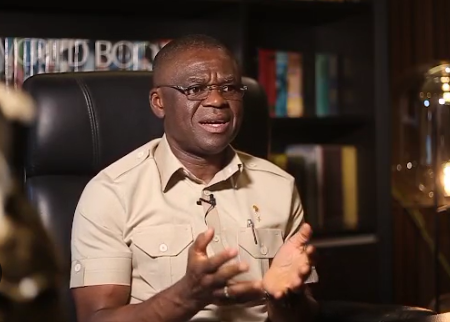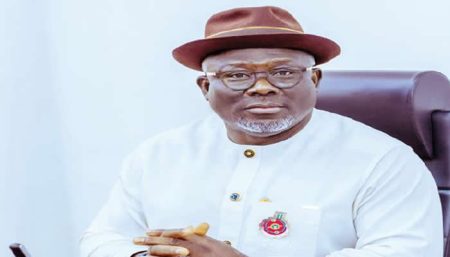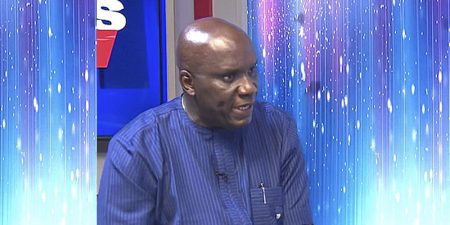The National Institute for Sports (NIS), Nigeria’s premier sports training institution, is set to undergo a comprehensive decade-long transformation under the leadership of its newly appointed Director-General, Philip Shaibu. This ambitious revitalization plan aims to elevate the NIS into a globally competitive sports development center, capable of producing world-class athletes, coaches, and sports administrators. Shaibu’s roadmap, encapsulated in the “Revolutionary 4 Rs – Revitalise, Redefine, Rebrand, Relaunch,” outlines a multi-faceted approach to address the institute’s long-standing challenges and propel it into a new era of excellence. A key element of this transformation involves achieving financial self-sufficiency, allowing the NIS to operate independently of government funding.
The revitalization process begins with a comprehensive overhaul of the academic curriculum, much of which has remained unchanged since the institute’s inception in 1972. This modernization will involve reviewing and updating existing courses to align with international best practices and the evolving demands of the sports industry. The NIS will also elevate its certification standards to match those of prestigious organizations like FIFA and CAF, ensuring graduates possess globally recognized credentials. This academic restructuring underscores the institute’s commitment to producing highly skilled professionals capable of contributing to the advancement of sports in Nigeria and beyond.
Beyond academics, the transformation plan includes a significant investment in infrastructure. The NIS facilities will undergo extensive renovations and upgrades to create a modern, state-of-the-art learning environment. This modernization will not only enhance the learning experience but also project an image of professionalism and excellence, crucial for attracting talented individuals and establishing the NIS as a respected institution within the global sports community. The rebranding effort extends to the institute’s visual identity, reflecting its renewed focus on innovation and excellence. This comprehensive approach aims to create a holistic transformation, impacting every aspect of the NIS, from its academic offerings to its physical presence.
To guide this ambitious endeavor, a 32-member advisory committee, comprised of prominent sports figures, academics, and business leaders, has been inaugurated. This committee, chaired by NNPC Ltd Chairman Engr. Musa Kida, will provide strategic counsel and support to the Director-General, ensuring the transformation plan remains aligned with the institute’s goals and the broader national sports development agenda. The committee’s diverse expertise will be invaluable in navigating the complexities of the transformation process, drawing on their collective experience to address challenges and capitalize on opportunities. This collaborative approach underscores the importance of engaging a broad range of stakeholders in the revitalization of the NIS.
The transformation plan has garnered strong support from key stakeholders, including the Chairman of the National Sports Commission, Shehu Dikko, and the Chief of Defence Staff, General Christopher Musa. Dikko emphasized the alignment of the initiative with the President’s vision for sports development, highlighting the importance of revitalizing the NIS to regain its position as a leading sports training institution. General Musa pledged military support, emphasizing the role of sports as a non-kinetic strategy for promoting peace and security. This endorsement from high-ranking officials underscores the national significance of the NIS transformation and the commitment to its success.
The Director-General, Philip Shaibu, has outlined a clear vision for the future of the NIS, emphasizing the importance of financial independence. He aims to transition the institute away from reliance on government funding, enabling greater autonomy and flexibility in its operations. This financial independence will allow the NIS to invest strategically in its programs, infrastructure, and human capital, further enhancing its ability to produce world-class sports professionals. As a first step towards modernization, Shaibu has announced the immediate digitalization of examinations, demonstrating a commitment to leveraging technology to improve efficiency and transparency.
In addition to the digitalization of examinations, the NIS plans to temporarily halt new admissions to allow for a thorough review and restructuring of its academic programs. This pause will enable the institute to implement the necessary changes without disruption and ensure the curriculum aligns with its revitalized mission. This strategic decision highlights the institute’s commitment to quality and its dedication to creating a truly transformative learning experience for future students. The planned expansion of the NIS to include centers in each geopolitical zone underscores the commitment to making quality sports education more accessible across the country.
The NIS transformation is not merely a cosmetic overhaul but a fundamental shift in its approach to sports development. It represents a renewed commitment to excellence, innovation, and global competitiveness. By fostering a culture of continuous improvement and embracing best practices, the NIS aims to become a beacon of sports education in Africa and beyond. This bold vision, coupled with the dedicated leadership of its Director-General and the support of key stakeholders, positions the NIS for a future of sustained growth and impact on the national and international sports landscape.
The inclusion of renowned sports personalities like five-time Olympian Mary Onyali, former Super Eagles coach Austin Eguavoen, and respected sports science professor Ken Anugweje on the advisory committee underscores the commitment to leveraging expertise and experience. These individuals bring a wealth of knowledge and a deep understanding of the challenges and opportunities facing Nigerian sports. Their contributions will be crucial in shaping the direction of the NIS and ensuring its programs remain relevant and effective.
Furthermore, the presence of business magnate Tonya Lawani and former African long jump champion Yusuf Ali on the committee highlights the importance of private sector engagement and the recognition of sports as a viable industry. Their involvement will facilitate partnerships and collaborations that can contribute to the financial sustainability of the NIS and create opportunities for students beyond graduation. This blend of academic, sporting, and business expertise within the committee provides a holistic perspective and strengthens the institute’s ability to achieve its ambitious goals.
The comprehensive rebranding strategy also includes a visual overhaul of the institute’s identity, reflecting its renewed focus on innovation and excellence. This will not only enhance the institute’s image but also attract a new generation of students and stakeholders. The combination of academic rigor, modern facilities, and a strong brand identity will position the NIS as a premier destination for sports education in Africa and beyond. This comprehensive approach ensures that the transformation extends beyond internal changes and reflects the institute’s renewed vision to the wider world.
This comprehensive modernization aims to create a holistic transformation, impacting every aspect of the NIS, from its academic offerings to its physical presence and its image on the global stage. The goal is to foster a learning environment that nurtures talent, promotes innovation, and produces graduates ready to lead the future of sports in Nigeria. This transformative journey will require sustained dedication, collaboration, and a willingness to embrace change, ultimately contributing to the growth and development of the Nigerian sporting ecosystem. The success of this transformation will not only benefit the NIS but also contribute to the overall development of the sports sector in Nigeria.
The commitment to halting admissions for a year demonstrates a focus on quality over quantity. It provides the necessary time to implement the changes effectively, ensuring that the curriculum aligns with the institute’s revitalized mission and prepares students for the demands of the modern sports industry. This strategic pause will allow the NIS to emerge stronger and better equipped to fulfill its mandate of developing world-class sports professionals. The long-term benefits of this decision will be realized through a more robust and relevant curriculum that caters to the evolving needs of the sports sector.














